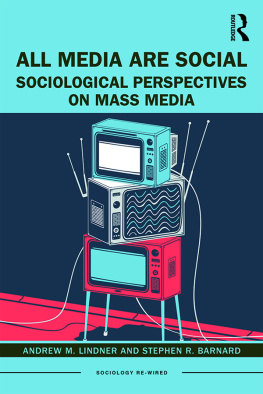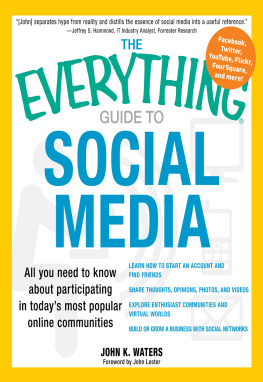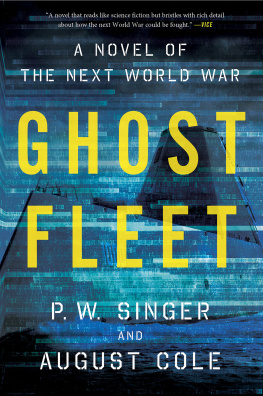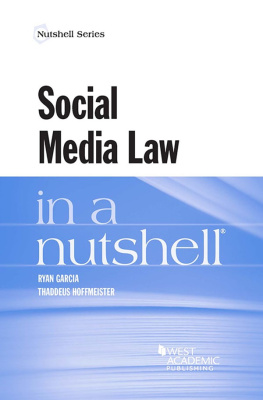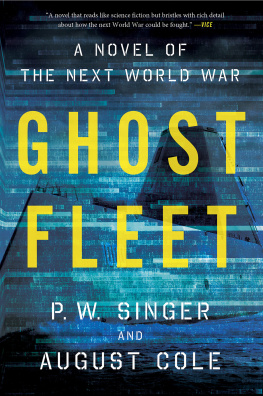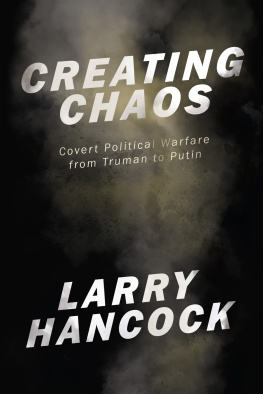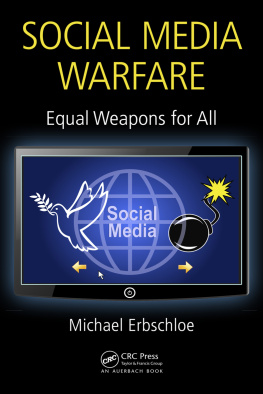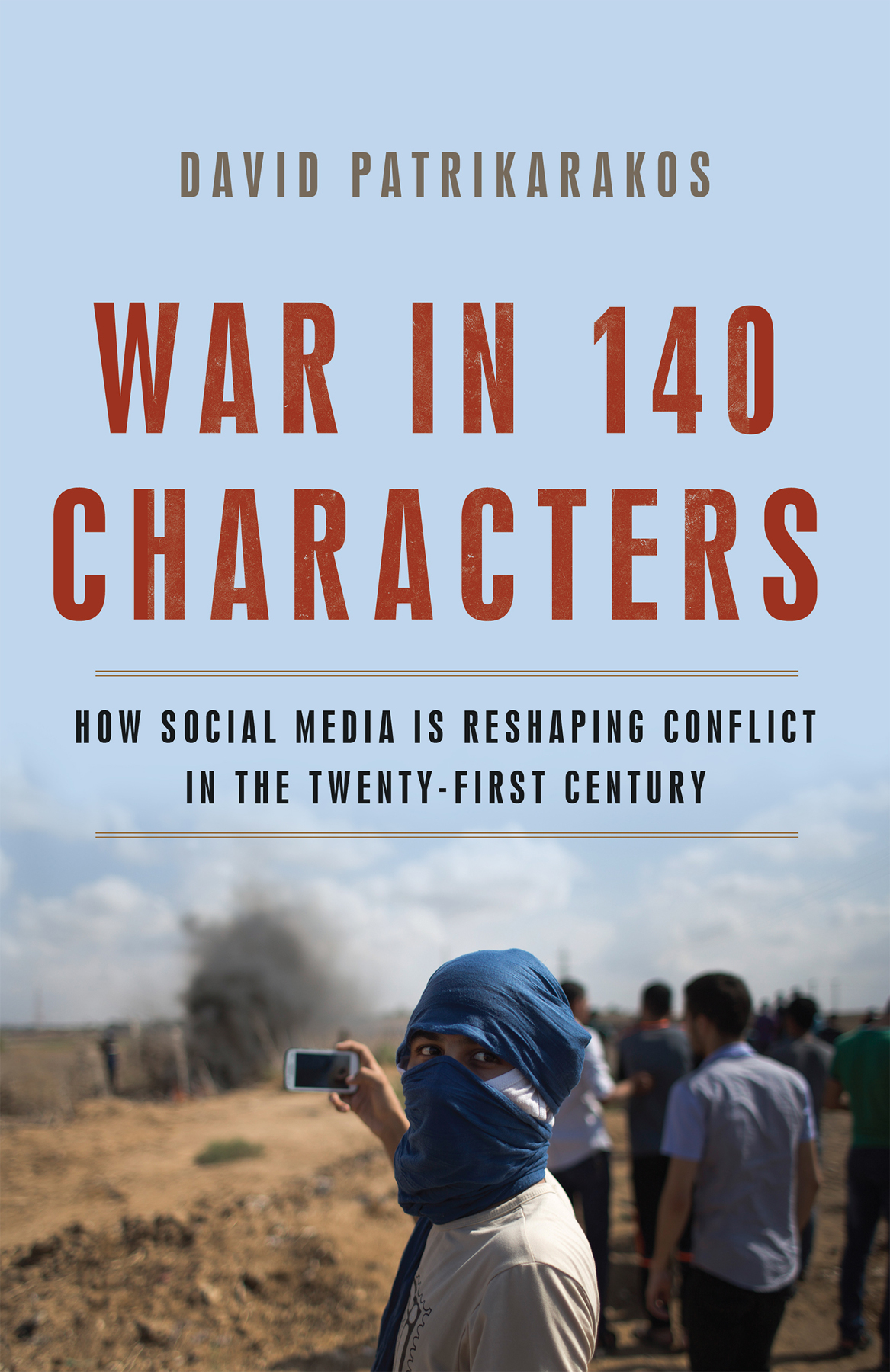Copyright 2017 by David Patrikarakos
Hachette Book Group supports the right to free expression and the value of copyright. The purpose of copyright is to encourage writers and artists to produce the creative works that enrich our culture.
The scanning, uploading, and distribution of this book without permission is a theft of the authors intellectual property. If you would like permission to use material from the book (other than for review purposes), please contact permissions@hbgusa.com. Thank you for your support of the authors rights.
Basic Books
Hachette Book Group
1290 Avenue of the Americas, New York, NY 10104
www.basicbooks.com
First Edition: November 2017
Published by Basic Books, an imprint of Perseus Books, LLC, a subsidiary of Hachette Book Group, Inc.
The Hachette Speakers Bureau provides a wide range of authors for speaking events. To find out more, go to www.hachettespeakersbureau.com or call (866) 376-6591.
The publisher is not responsible for websites (or their content) that are not owned by the publisher.
The Library of Congress has cataloged the hardcover edition as follows:
Names: Patrikarakos, David, 1977 author.
Title: War in 140 characters : how social media is reshaping conflict in the twenty-first century / David Patrikarakos.
Other titles: How social media is reshaping conflict in the twenty-first century
Description: First edition. | New York : Basic Books, [2017] | Includes bibliographical references and index.
Identifiers: LCCN 2017022137 (print) | LCCN 2017027790 (ebook) | ISBN 9780465096152 (ebook) | ISBN 9780465096145 (hardcover)
Subjects: LCSH: Information warfareCase studies. | Social mediaPolitical aspects. | PropagandaTechnological innovations. | Online social networksPolitical aspects. | Arab-Israeli conflictMass media and the conflict. | Ukraine Conflict, 2014Mass media and war. | IS (Organization)In mass media. | CyberspacePolitical aspects. | War and society.
Classification: LCC U163 (ebook) | LCC U163 .P375 2017 (print) | DDC 355.020285/5678dc23
LC record available at https://lccn.loc.gov/2017022137
ISBNs: 978-0-465-09614-5 (hardcover); 978-0-465-09615-2 (e-book)
E3-20171012-JV-PC
Regardless of how things factually unfold on the ground, an army of twenty-first-century operatives has arisen to shape and manipulate the perception of the masses. In a highly insightful and timely journey, author David Patrikarakos investigates this world and rhetorically asks If a bomb lands in a village and nobody tweets about it, did it actually happen? Packed with insights from Patrikarakos years as a journalist, War in 140 Characters deftly explores the intersection of warfare and information and what it means for the future of our world.
Marc Goodman, New York Times bestselling author of Future Crimes
An important, somewhat scary book, built around a series of fascinating profiles, on how social media is changing issues of war and peace, eroding the concept of the nation state, and making the truth harder to find. It is all the more scary in that Putin and ISIS seem to understand and exploit this new world better than the West, and Trump appears to want to emulate rather than challenge the demagogic strategies and dishonest tactics they deploy.
Alastair Campbell, author and strategist, former director of communications and strategy for Prime Minister Tony Blair
Reporting from the conflict zones of Eastern Europe and the Middle East, David Patrikarakos goes beyond descriptions of places he visited, people he met, and situations he encountered to find common threads that define the new state of war. Inquisitive, thoughtful, and wonderfully written, this is a book for all of us, who whether we want it or not, find ourselves in the cyber trenches of the new global war, and have to learn how to fight and live in the world it has created.
Serhii Plokhy, author of Lost Kingdom
To my father, who changed the course of everything
As ever when writing a book, the list of people to whom I owe thanks will be long yet almost certainly incomplete. Most immediately, I owe a huge debt of gratitude to John Jenkins and Huston Gilmore, true scholars, both of whom took time out from their own intellectual pursuits to read through the manuscript and help improve it immeasurably. Rebecca Greigone of the finest journalists I knowbrought both her time and editing skills to answer my endless questions with endless forbearance; the text is all the better for her input. Alan Ramon Ward and Bryn Harris also took the time to read sections of the book, for which I am extremely thankful.
Emile Simpson, whose work was a great inspiration for me, also took the time to read the manuscript and give me the benefit of his expert opinion, which again, proved invaluable.
Thanks must also go to my editors at Basic Books, Lara Heimert and above all Leah Stecher, who was on hand throughout the process and whose excellent advice and edits I almost universally incorporated into the book. My agent, Peter Robinson, was also always there to provide advice and support throughout. Writing a book that has taken me from Gaza to Siberia has been a difficult process, and their unfailing patience and guidance were vital to bringing this work to fruition.
I must also mention the various people who helped me on the ground, from Mohamed in Gaza to Elie in France to Andrey in Russia. Again, their assistance was vital to making this book what it is, and I am grateful.
Lucy Cockcroft was an unyielding source of support and encouragement, for which she has my eternal thanks. I am also grateful to all the staff at Caf Diplo, where I spent so many hours working on this bookguys, you are great. I must also thank Kristyna Foltynova for her quick work that, at times, saved this book by allowing me to travel to places I so desperately needed to go. Gratitude goes also to Dave McAvoy, who helped me with Arabic translation where necessary, and of course to all the experts who I interviewed and whose thinking helped inform my own.
I could never have written this book without the unfailing support of Anna Zaika, to whom I owe so much. Thank you, Anya. Thanks also to my brother, Phillip, and to my father, without whom I never would have been able to undertake all the necessary research. You saved me, guys.
I must also thank my mother and Rene for all the support and kindness they have shown me throughout my life, enabling me to do the things that make me happy.
I would like to thank the editors at Mashable, the New Statesman, Foreign Policy, the Daily Beast, and the New York Times, who have kindly allowed me to reproduce for the book excerpts from articles I have previously written for them. I thank them also for the opportunities they have given me to write for them and for helping me to improve my prose over the years.
Finally, and perhaps most of all, thanks must go to the stars of this book: the characters profiled, all of whom gave their time generously to help me tell the story of twenty-first-century warfare and social medias role at its heart.
David Patrikarakos
May 2017
July 5, 2014:
The occupied city of Donetsk, in eastern Ukraine
I woke up and, as always, immediately checked my phone. What I saw astonished me: Twitter was reporting that Ukrainian forces had driven pro-Russia separatists from their stronghold in the nearby town of Sloviansk. The rebels were now fleeing to Donetsk, the self-proclaimed capital of the separatist enclave. Tweeted photos of the escaping convoy taken by passersby confirmed the story. I checked the BBC and other traditional news outlets for coverage but found nothing. The truth, however, was plain to see all around me: the city was in lockdown, its streets almost empty. Nobody was enjoying the weekend sunshine. I made my way to the citys occupied central administration building, which was now serving as the Peoples Republic of Donetsk (DNR) headquarters. Outside, several tattooed militia members guarded the entrance, fiddling listlessly with their Kalashnikovs. After a cursory search of my rucksack, they allowed me to enter. DONT BE A PIG. CLEAN UP AFTER YOURSELF : the exasperated-sounding sign, taped to a pillar, looked over an archipelago of rubbish strewn across the buildings lobby. I made my way to the elevator.


